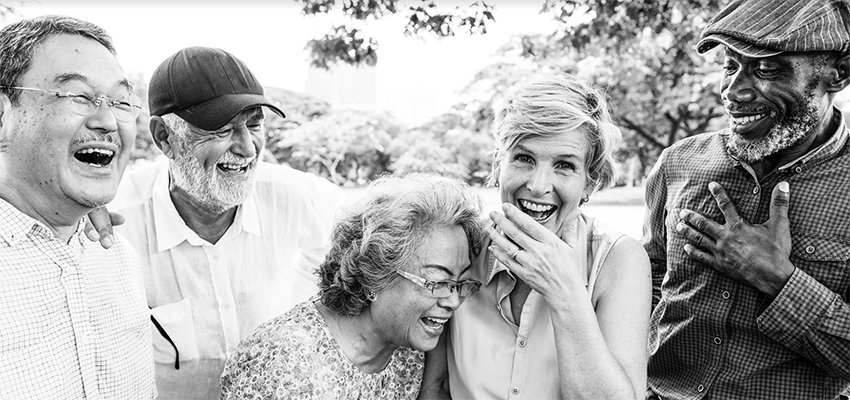How Exercise Can Improve Mental Health for Seniors
Unfortunately, depression is a common affliction in older adults and one of the most difficult conditions to treat. One of the things that makes detection and treatment difficult is the tremendous complexity in both symptoms and cause. Depression is often associated with a wide range of social, demographic, and physical dynamics that are difficult to untangle.
The bad news is that when depression is left untreated, it often leads to an increased risk of illness, morbidity, and mortality.
The good news is that most of the time, depression is treatable – IF it’s detected and properly understood in the context of each individual, with their unique circumstances and needs.
For older adults, the most common treatment options for depression include antidepressants, electroconvulsive therapy, cognitive and behavioral therapies - and exercise. While many physiological and psychological treatment options for depression are effective, many are also demanding resources and come with undesirable side effects.
For example, while antidepressants are effective for some older adults, many are also associated with side effects that can cause an increased risk of falling. In addition, first episode depression after the age of 60 has a 70% risk of recurrence within two years of remission even when treated with antidepressants and/or psychotherapy.
But, new research suggests that, for some older adults, exercise might be a more effective, sustainable, long-term solution to depression, partially because it comes with no negative side effects. Let’s break down what we know about the link between depression in older adults and physical exercise.
The link between physical activity and mental health.
The link between physical activity and overall health has been well documented. A wide body of research shows that consistent physical exercise reduces cardiovascular risk, improves blood pressure and respiration, and can help individuals maintain a healthy weight. But, an increasing body of research shows that physical exercise also has a positive impact on mental health, pain management, and depression.
A variety of studies have shown that increased levels of physical activity in older adults result in better balance (and a decreased risk of falling), strength and gait endurance, and an overall improvement in quality of life. All of these improvements have a natural mood-boosting effect, but there is ample research to show that there are direct biological explanations for the diminishing effects that physical exercise has on depression as well.
For example, a study published in the American Journal of Physiology found that physical activity may help fight depression in seniors by stimulating muscle-generated mood boosters. The study is significant because while there is research that offers insight into the underlying mechanisms that cause us to feel good during and after exercise, most studies have focused on younger adults, teens, and children.
We know that physical activity influences the key metabolic pathways that promote mood-enhancing chemicals, such as serotonin, within the brain. But some researchers questioned whether the same effects could be found in older adults. Why?
Because muscle loss (called sarcopenia), which is extremely common in older adults, has been shown to restrict those metabolic pathways. This might not only increasethe risk of depression as we age but also decrease the mood-boosting effects of exercise.
However, this particular study, which measured the effects of high-intensity interval training and strength training on a group of adults over the age of 65, might put some of those fears to rest. Researchers found that just 12 weeks of exercise had a significant positive impact on the mood of the participants.
Another study, conducted by researchers at Duke University, followed 156 older adults with major depressive disorder over a 5-year period. Participants were divided into three groups: one that exercised, one that took antidepressant medication, and one that exercised and took antidepressant medication. Results showed significant improvement with all three groups:
- 60% of those in the exercise-only group were no longer depressed
- 65% in the medication-only group were no longer impressed
- 68% in the combined exercise and medication group were no longer depressed
Resistance Training May Have a Particularly Significant Impact on Mental Health
A recent study out of Finland investigated the effect that 9 months of resistance training had on the psychological well-being of a group of adults, aged 65 and older. The results of the study showed significant improvements in mental health after just 3 months of resistance training, especially in how satisfied the participants felt with their environment, physical safety, and the ease with which they could engage in daily activities.
After 9 months, the effect was even stronger, suggesting that resistance training has a significant effect on the mental health in older adults partially because it improves their ability to independently manage their life.
Another study showed a similar effect, demonstrating that strength training builds motivation and confidence. Participants, who were all over the age of 65, were divided into three groups. One group trained once a week, another trained twice a week, and one group did not train at all.
Throughout the study, researchers not only measured the participants' strength, fitness, and metabolic health, but also their attitudes about the workouts, including whether they found them intimidating or overwhelming and how motivated they were to show up for each training session.
After 6-months of supervised training, the participants in both resistance training groups were told that their access to the university training center and personal trainers were complete and if they wanted to continue resistance training, they should do so independently, at a gym of their choosing. Six months later, the researchers contacted all of the participants and found that about half were still engaged in regular resistance training.
Perhaps most interesting about the study is that the researchers found little correlation between the amount of strength a person had gained and their level of motivation. In other words, the participants who had gained the most muscle mass as a result of their training were not necessarily those who were most motivated to keep training.
Rather, it was the participants who gained a sense of self-efficacy and competence as a result of the first 6-months of resistance training that were still training on their own long after the study’s completion. Some participants discovered that resistance training gave them confidence in their physical abilities that extended to areas of their life outside the gym. They reported satisfaction in doing things that they could not do before their participation in the study. This satisfaction had a profound effect on their overall quality of life and mental health.
The active nature of physical exercise
While research shows a direct physiological link between physical and mental health, one other reason behind the diminishing effect that exercise has on depression could be because exercise requires one to take an active role in their own health and wellbeing.
While antidepressant medication can be extremely helpful for some individuals, the act of taking a pill is somewhat passive. In contrast, exercise is active, requiring self-efficacy and a greater sense of self-mastery and accomplishment. This alone could be a significant reason behind the long-term effect that physical exercise has on mental health.
The bottom line: Even otherwise healthy older adults should prioritize regular physical exercise in order to maintain or improve their mental health.






